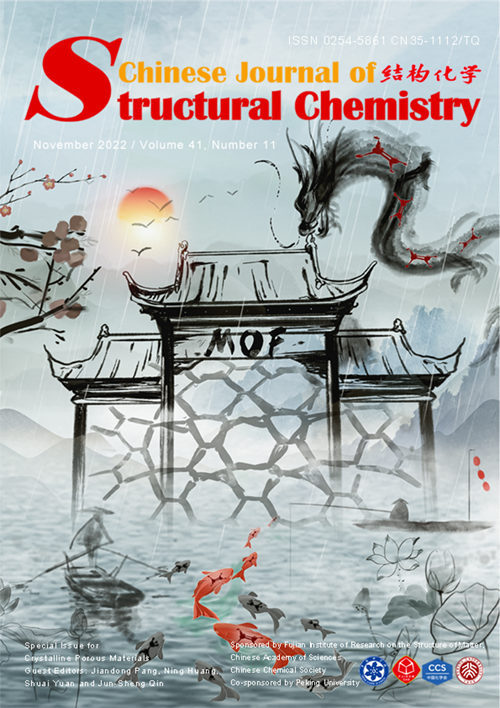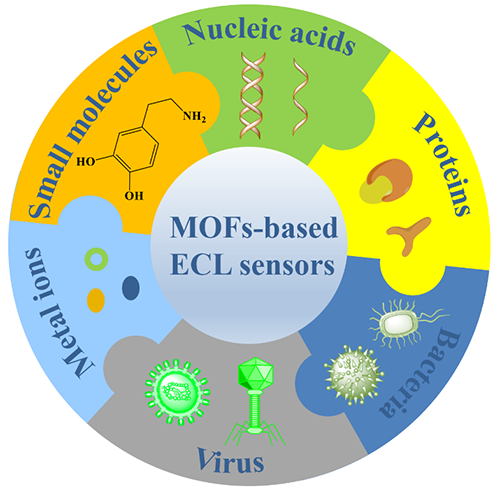
Cover Picture
Recent Advances in C2 Gases Separation and Purification by Metal-Organic
Frameworks
Zhengyi Di, Xinjing Zheng, Yu Qi, Heng Yuan and Cheng-Peng Li*
Submit a ManuscriptA Review on the Progress of Metal-Organic Frameworks in Electrochemiluminescence Sensors
Huiping Sun*, Zuoxi Li, Yu Gu and Chunxian Guo
Chin. J. Struct. Chem. 2022, 41, 2211018-2211030
October 31, 2022
metal-organic frameworks, electrogenerated chemiluminescence, sensors, application
ABSTRACT
Electrochemiluminescence (ECL) is a powerful technology that is the
triple point of chemical, electronic, and optical technologies. The ECL-based
sensors attract enormous attention due to the unifying of the advantages of
electrochemical and optical sensors. The development of ultrasensitive, rapid,
highly specific, and cost-effective ECL sensors for detecting substances with human
health and life is critical. Metal-Organic Frameworks (MOFs) is a kind of
molecular crystalline material regarded as a promising candidate for application
in ECL sensors after its great improvement because of the improved MOFs with
particular merits such as large surface area, tunable pore scale, structural
diversity, superior conductivity, water stability, low toxicity, and good biocompatibility.
In this review, we emphasize discussing the applications of MOFs for ECL sensing
detection of varying targets that are related to human health and life, such as metal ions, small
molecules, nucleic acids, proteins, bacteria, and viruses. Then, the relationship between ECL
performance and MOFs characters is sprinkled in the discussion of the
representative example. Finally, we provide the potential opportunities and
challenges faced by MOFs in the realm of ECL sensors, as well as the future
perspectives.







